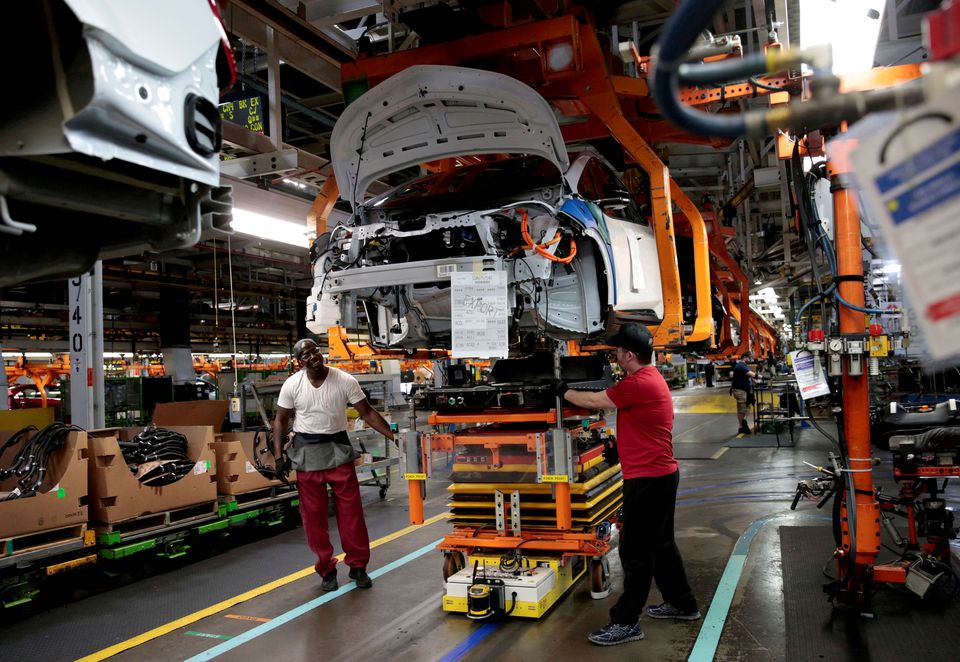DETROIT, Nov 17 (Reuters) – General Motors Co’s (GM.N) “Factory Zero” in Detroit is on the front line of a battle for the U.S. electric vehicle market between ageing, unionized factories, and new, non-union plants run by young electric vehicle companies.
President Joe Biden’s administration wants to give the older part of the American auto industry a boost.
The Biden administration and fellow Democrats in Congress have proposed nearly $50 billion in tax breaks, incentives for government agencies to buy electric vehicles, loans for retooling factories and aid to automotive plant communities.
That doesn’t count billions in new subsidies to spur sales of electric vehicles, such as a 30% tax credit for commercial electric vehicles.
A proposal for up to $12,500 in tax credits to consumers who buy an electric vehicle assembled in the United States by union workers so far appears to lack the votes to pass the closely divided U.S. Senate.
Auto manufacturers could also benefit from $3 billion allocated to a Department of Energy Advanced Technology Vehicles Manufacturing Loan Program.
GM’s head of global manufacturing, Gerald Johnson, told Reuters that federal spending could accelerate demand for electric vehicles, which is one reason the automaker has made flexibility a priority at Factory Zero.
If the Build Back Better legislation passes, GM will factor that into its plans, he said, adding: “It does not change what we are doing.”
Factory Zero, opened in 1985, is one of 21 GM assembly and powertrain operations in the United States, and the first to get a makeover to begin assembling electric vehicles.
Biden is expected to get a look at one of the first GMC Hummer EVs assembled at the plant. The first Hummer models will have starting prices above $100,000 – too much to qualify for proposed EV tax credits.
GM said it can save up to $15 billion by 2030, and even more after that, by re-purposing its factories and retraining its current workforce, rather than follow rivals such as Tesla Inc (TSLA.O) and build new factories in Southern and Western states.
GM’s North American electric vehicle assembly capacity will reach 20% by 2025, and 50% by 2030, Johnson said.
Tesla captured nearly 80% of the U.S. electric vehicle market in 2020. Its share is expected to decline as more electric vehicles are launched.
The company told Texas officials that its factory workers there would earn about $47,000 a year. Factory workers at GM begin at $28 an hour, or about $56,000 a year, under their United Auto Workers agreement.
Plants that have battery-making and vehicle assembly in one complex – like the Tesla factory in Austin, Texas – can be more efficient, cutting transportation costs for batteries, said Mike Tracy, president of the Agile Group, a manufacturing consultancy.
“GM is trying to avoid putting union workers out of business,” Tracy said.
Rival Ford Motor Co (F.N) added an assembly line for electric F-150 pickups at a plant in Dearborn, Michigan. Ford also has announced plans to build a sprawling electric vehicle assembly and battery complex in Tennessee.
GM is trying to take advantage of a U.S. factory system that has excess capacity, Johnson said. Managing a mix of combustion and electric vehicles during the coming decade could mean using what is now extra space to avoid interrupting production as plants are retooled.
“That footprint is an asset, it’s not an anchor,” he said.









